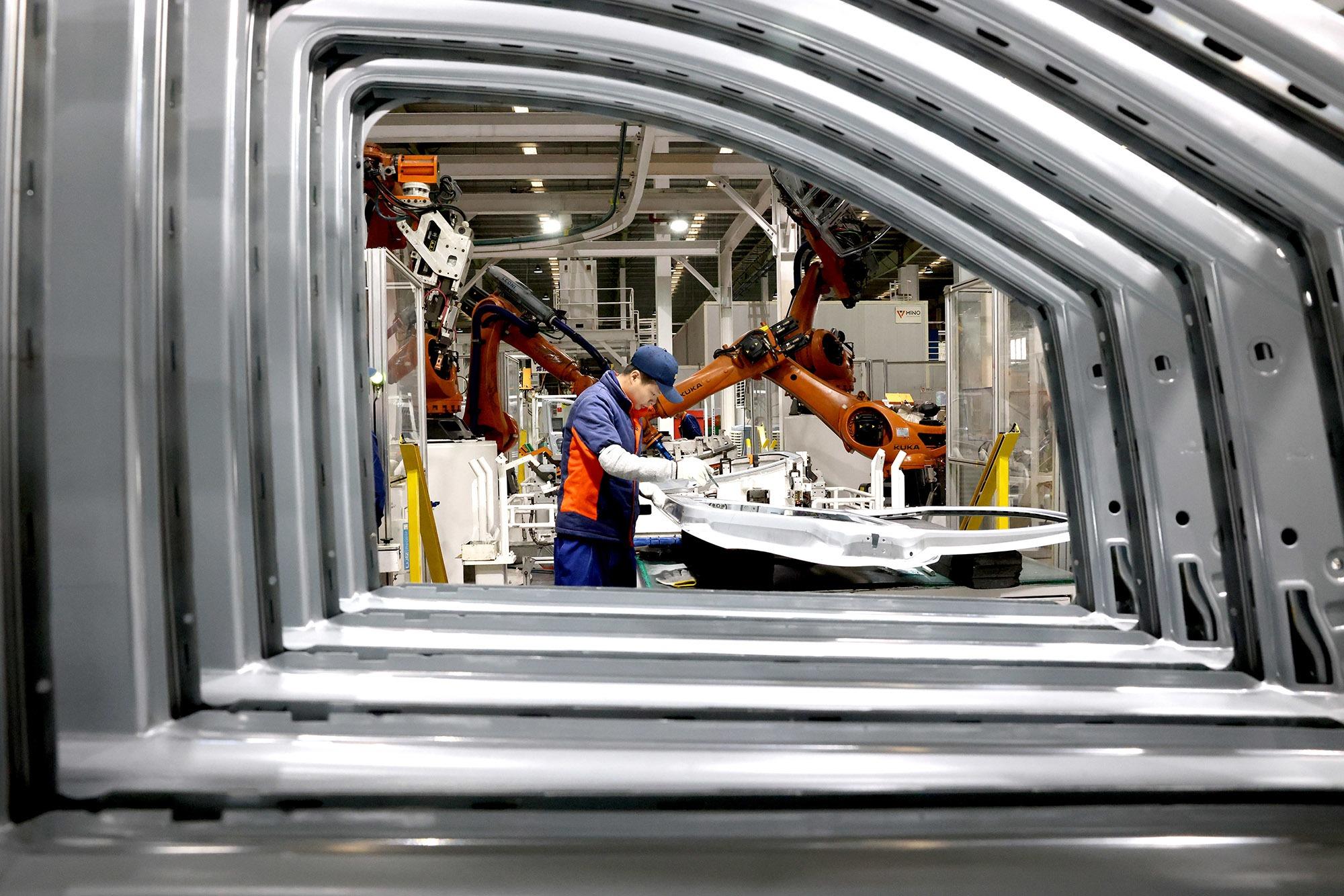Industry lauds thrust on high-end manufacturing
 An employee works on an auto components production line in Fuzhou, Fujian province. (WANG WANGWANG / FOR CHINA DAILY)
An employee works on an auto components production line in Fuzhou, Fujian province. (WANG WANGWANG / FOR CHINA DAILY)
China's focus on developing the high-end manufacturing sector and new quality productive forces will strengthen the world's industrial and supply chains, despite a grim and complex global environment, said industry leaders and business executives on Tuesday.
In a rapidly evolving global economy, strategic emerging industries, representing the direction of a new round of technological revolution and industrial transformation, are set to enhance new quality productive forces and foster innovation, they said.
READ MORE: Xi emphasizes need to develop new quality productive forces
As the world grapples with challenges like climate change, resource scarcity and technological disruptions, China's commitment to advancing high-end manufacturing, including electric vehicles, machine tools, solar panels, energy storage equipment and the next-generation vessels, is not only reshaping its own economic landscape but also making the global economy and supply chains greener and diversified, said Ye Dingda, chief economist of the Beijing-based China Machinery Industry Federation.
Chen Shihua, deputy secretary-general of the China Association of Automobile Manufacturers, said that one of the key areas where China is expected to make substantial contributions is the realm of electric vehicles and battery technologies.
With the global automotive industry undergoing a significant shift toward electrification, China's advancements in battery technology and manufacturing are set to play a crucial role in cutting the carbon footprint of transportation and enhancing energy efficiency across the world, Chen said.
This sentiment is in line with the latest data from the Beijing-based association. China exported 822,000 automobiles in all, including EVs, during the January-February period, up 30.5 percent year-on-year.
China's ongoing green transformation has also created business opportunities for multinational corporations operating in the country. Ramesh Singaram, president and CEO for Asia at the gas power unit of GE Vernova, a United States-headquartered energy solution and services provider, said that a complementary approach combining gas and renewable power generation is the most effective and sustainable way for China to achieve its dual carbon goals.
"Gas power generation, with its inherent flexibility and low emissions profile and the versatility of pumped storage, which offers excellent adjustable performance, is poised to become indispensable components of China's power system," he said, adding that with more than 4,000 employees in over 10 offices and manufacturing sites in China, the company will introduce more solutions and products in the country.
Despite facing strong headwinds, including the US restrictions on exporting lithography machines for chipmaking to China through third-party channels and the European Union's initiation of an anti-subsidy investigation targeting Chinese EVs, business leaders said that China's push for innovation in information technology is unwavering.
Particularly in areas like 5G, artificial intelligence and the internet of things, these factors are expected to revolutionize the way companies in the manufacturing sector operate and interact with consumers.
These technologies are not only driving the development of the manufacturing sector and smart cities, but also enabling more resilient and responsive supply chains, said Zhang Zhiyong, chairman of China Tower Corp Ltd, a Beijing-based mobile communication infrastructure company that runs almost all of China's telecom towers.
ALSO READ: Beijing: US export control does no good to US firms
Highlighting the importance of new quality productive forces aimed at emerging and future-oriented industries, Zhang said that integrating the development of a manufacturing powerhouse with the digital economy and industrial informatization is essential.
China Tower, a State-owned enterprise, is implementing innovative tasks in strategic emerging industries such as the next generation of mobile communications, computing power networks, 6G and satellite internet.
"China's strategic emerging industries and future industries are set to offer numerous opportunities for cross-border collaboration and innovation," said Chu Xiangyin, a professor of supply chain management at the University of International Business and Economics in Beijing.
By leveraging its strengths in manufacturing, technology and sustainability, China is well-positioned to make significant contributions to global industrial and supply chains, ultimately driving economic growth and environmental progress both domestically and internationally, Chu said.


